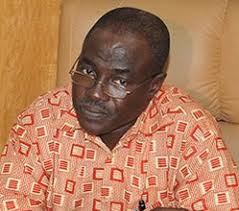
The draft Extractive Industry and Transparency Initiative (EITI), a blueprint to provide legal framework and enhance transparency and accountability in payments originating from the natural resources sector and receipts from government is ready.
The EITI is to be laid in Parliament.
Mr. Joe Oteng Adjei, Minister of Energy made this known in a speech read on his behalf at the official opening of the two-week summer school on Oil, Gas and Mining revenues at the Ghana Institute of Management and Public Administration (GIMPA), Accra.
It was organised by the Regional Extractive Industries Knowledge Hub (REIK HUB), Revenue Watch Institute (RWI) and supported by the German Development Agency.
Mr. Oteng Adjei said the Bill would consolidate and expand the scope of the EITI to cover the entire natural resources governance to include oil, gas, forestry and fisheries.
Compliance and full disclosure would be mandatory for companies and government and its agencies would face sanctions if portions of the requirements were flouted.
He indicated that the passage of the Petroleum Revenue Management ACT 815 and the Petroleum Commission ACT 821 in 2011 are established transparency frameworks for efficient management of extractive industry’s revenues.
Mr. Oteng Adjei commended REIK Hub and GIMPA for sustaining the summer school concept which is in the fourth year.
Mr. Albert Kan-Dapaah, Chairman of the Public Accounts Committee and Member of Parliament for Afigya Sekyere West, noted that accountability mechanisms in the public sector financial management systems are flouted with impunity resulting in massive corruption by politicians and public servants.
He said, government’s efforts would be meaningless if institutions responsible for enforcing regulations remained weak.
Mr. Kan-Dapaah therefore called for deliberate investments in the capacity of institutions in the value chain process especially civil society organisations (CSOs) and the media or “we continue to swim in poverty in spite of the significant revenues accruing from the sector”.
Dr Josiah Cobbah, Head of Administration, GIMPA said the Institution had designed and domesticated programmes in line with rule of law, good governance and development beyond its mandate due to demands and quest to deepen the platform for public discourse and engagement.
Mr. John-Peter Amewu, Manager of REIK Hub said his outfit had trained some 140 stakeholders in the academia, CSO, media and industry actors, basically to facilitate deeper understanding of issues emanating from the extractive industry and develop regional capacity by providing training and mentoring schemes.
He said 45 participants and experts from Africa, Europe, Middle-East are benefiting from the current training with prospect 15 to be engaged for trainers of trainee regimes.
Mr. Emmanuel Kuyole, Coordinator of RWI expressed the belief that the skills and knowledge to be acquired would assist participants to track issues in the value-chain process and bring greater transparency into the operations of the extractive sector.**